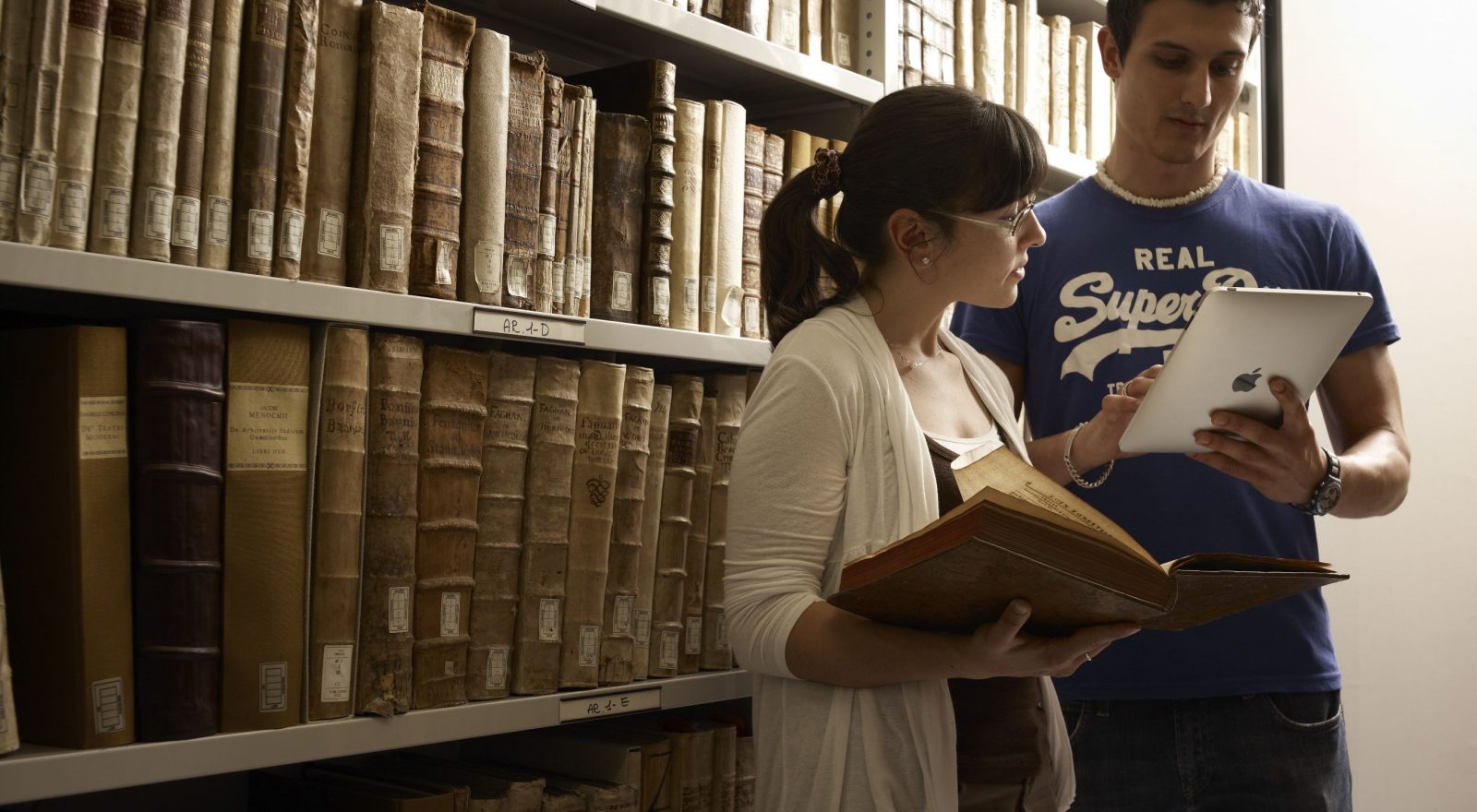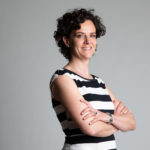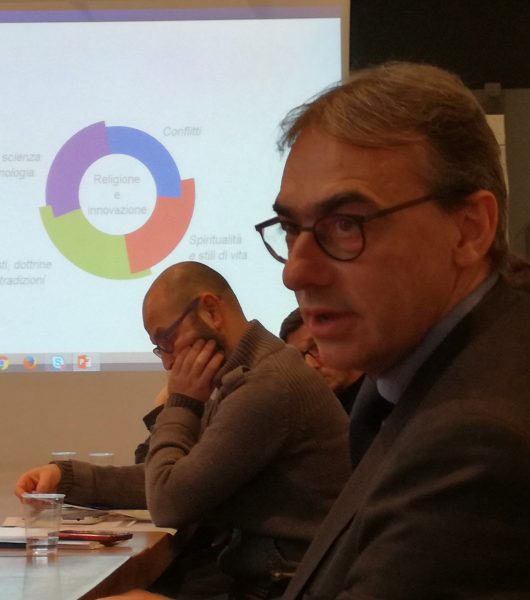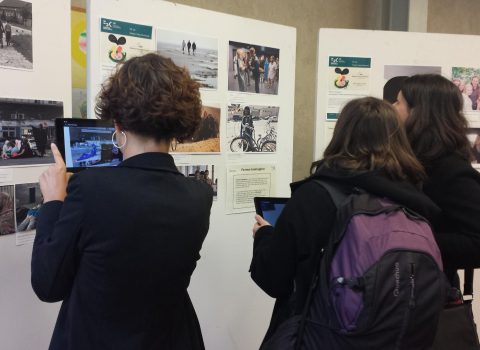
The 2017 FBK-ISR events: between religion and innovation
The ISR Center promotes over 20 events dedicated not only to the scientific community, but also to a wider, lay audience, in order to promote a fruitful exchange of views and ideas on issues often topical, and to become a meeting point that can favor the growth of the entire community.
The complex relationship between religion and innovation in contemporary societies – understood as social, political, legal and scientific-technological innovation – is the thread that runs through the calendar of 2017 events organized by the Center for Religious Studies (ISR) of Fondazione Bruno Kessler (FBK) and presented today by ISR Director Marco Ventura.
In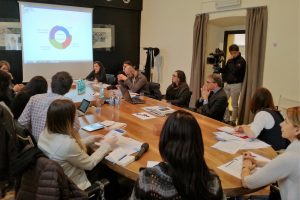 line with this mission, the ISR Center promotes over 20 events dedicated not only to the scientific community, but also to a wider, lay audience, in order to promote a fruitful exchange of views and ideas on issues often topical, and to become a meeting point that can favor the growth of the entire community.
line with this mission, the ISR Center promotes over 20 events dedicated not only to the scientific community, but also to a wider, lay audience, in order to promote a fruitful exchange of views and ideas on issues often topical, and to become a meeting point that can favor the growth of the entire community.
High points include international initiatives such as the conference “Arguing religion – Disagreement, Recognition, and the Reach of Argumentative Debate” in which more than twenty experts from around the world will discuss the argumentative approaches to religious disagreements. The event, organized in collaboration with the Alexander-von-Humboldt-Universität Berlin and the Albert-Ludwigs-University of Freiburg, will be held in Trento June 6 through 8, 2017.
The workshop “Traditions and traditionalisms” – political traditionalism in the United States and Russia (June 12 and 13, 2017) in collaboration with the University of Innsbruck aims instead to study the notions of “tradition” and “traditionalism” in the West (especially in the US) in light of the recent developments in the social doctrine of the Russian Orthodox Church. Such notions on tradition are complex and sometimes competing, and that is why comparison can help illuminate new aspects and grasp their geo-strategic implications for dialogue between Trump and Putin.
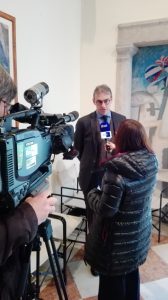
Innovation in contemporary Islam will be discussed by Professor Gudrun Krämer (Freie Universität Berlin, Department of Islamic studies) in a public lecture on the ambivalent perception of technological and social innovation within the contemporary Islamic communities. The conference, to be held May 18, 2017 is open to the public and provides ample room for discussion.
Finally, the second “Zordan Lecture”, in the autumn, will be dedicated to the topic believers and non-believers. The Lecture was established in memory of Davide Zordan, a researcher with the ISR Center who passed away in 2015, and, on an annual basis, deals with the role of theology in a secular society. The guest of the 2017 edition will be prof. Anthony Carroll (University of London), who will address the theme of dialogue between believers and skeptics, exploring some of the major issues that are at stake in one of the most important relationships for those who profess a faith today.
Main current issues dealt with in the other events include: the scientific possibilities and the ethical, legal and social interventions on the human genome; the deconstruction of stereotypes and prejudices against refugees and migrants; innovation in digital religions; and finally the tensions between the religious-philosophical identity and the one connected to sexual orientation in the workplace.
The events were presented by the Director of the Center, Marco Ventura who stressed that: “Among the various activities planned for 2017 by the ISR Center, events have a particularly significant role: they intend to bring to Trento witnesses of religious changes and intend to take Trento to the world of changing religions. ”
The ISR Center has in fact the ambitious goal of meeting the challenges of contemporary religious diversity through four lines of research aimed at exploring the manifestations of religion and contemporary spirituality and their interaction with innovation in society, in science and in the economy:
· Conflicts
· Values, science and technology
· Texts, doctribes and traditions
· Spirituality and lifestyle
«The 2017 events are promoted in collaboration with European and international universities and institutions, that in many cases finance the initiatives – concluded Director Ventura – and these events intend to offer not only an analytical and interpretative contributions, but also proactive and experimental ones with a view to improve the relationship between religion and innovation.» (sima).
